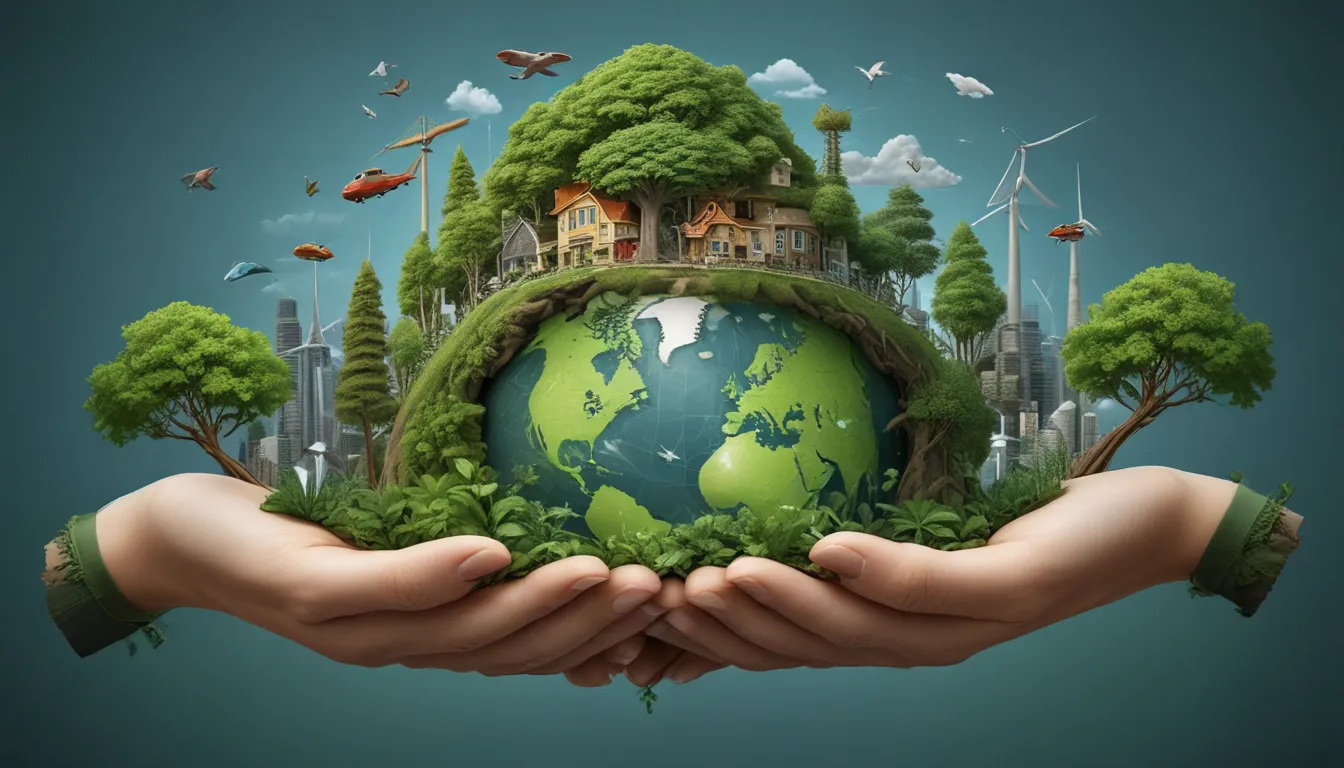A Note About Images: The images used in our articles are for illustration purposes only and may not exactly match the content. They are meant to engage readers, but the text should be relied upon for accurate information.
In today’s world, sustainability has emerged as a crucial concept, synonymous with environmental awareness and responsible living. It revolves around the idea of meeting the current needs of humanity without jeopardizing the ability of future generations to meet their own needs. From renewable energy to eco-friendly practices, sustainability plays a pivotal role in various industries and sectors, shaping the landscape of our future.
Exploring the Significance of Sustainability:
Let’s delve into 10 extraordinary facts about sustainability that shed light on its importance and the role it plays in shaping a more sustainable world. These facts range from the impact of sustainable practices on the planet to the benefits they offer to businesses and communities, showcasing the power of sustainability in fostering a greener future for all.
Key Highlights:
-
The world’s largest solar power plant is in India: Situated in Kamuthi, Tamil Nadu, the Kamuthi Solar Power Project spans 2,500 acres and generates an impressive 648 megawatts of electricity, making it the largest solar power plant globally.
-
Norway leads in electric vehicle adoption: With a commitment to reducing carbon emissions, Norway incentivizes electric vehicle ownership through tax exemptions, free public charging, and access to bus lanes, setting an example for other nations.
-
The Great Barrier Reef visible from space: Stretching over 2,300 kilometers, the Great Barrier Reef is not only the largest coral reef system but also visible from the International Space Station, showcasing its immense scale.
-
Recycling one ton of paper saves 17 trees: By recycling paper, we can combat deforestation and preserve essential habitats for a myriad of species, underlining the impact of our paper consumption on the environment.
-
Denmark’s wind power contribution: Denmark generates over 40% of its electricity from wind power, demonstrating remarkable progress in renewable energy and its potential in meeting electricity needs sustainably.
Unveiling Sustainable Solutions:
-
Plants combat indoor air pollution: House plants like snake plants, spider plants, and peace lilies act as natural air purifiers, removing toxins and enhancing indoor air quality for a healthier living environment.
-
Seaweed as a plastic alternative: Seaweed-based packaging emerges as a sustainable substitute for traditional plastics, offering biodegradable and renewable packaging solutions to reduce environmental impact.
-
Sustainable agriculture practices for climate action: Implementing regenerative farming techniques such as cover cropping, crop rotation, and organic fertilization enables farmers to enhance soil health, sequester carbon, and mitigate greenhouse gas emissions.
Pioneering Towards a Greener Tomorrow:
Costa Rica stands out as a beacon of sustainability, running on 99% renewable energy, primarily sourced from hydropower, positioning itself as one of the greenest countries globally. Additionally, LED light bulbs, known for their longevity, lasting up to 25 times longer than traditional incandescent bulbs, offer an energy-efficient lighting solution, contributing to reduced energy consumption and waste generation.
In conclusion, sustainability transcends being a mere buzzword to being a pivotal concept that shapes our environment, economy, and society. These extraordinary facts exemplify the significance of sustainability and the strides we are making towards a more sustainable future, where renewable energy, eco-friendly practices, and conscientious decisions pave the way for a greener planet.
Frequently Asked Questions:
-
What is sustainability?
Sustainability involves meeting present needs without compromising future generations’ ability to meet their own, balancing environmental, economic, and social factors for long-term well-being. -
Why is sustainability important?
Sustainability protects the environment, conserves natural resources, reduces waste, and addresses social and economic disparities, ensuring a sustainable future for all. -
How can individuals contribute to sustainability?
Individuals can contribute by adopting eco-friendly practices like conserving energy, supporting sustainable businesses, reducing waste, and promoting sustainable transportation options. -
Why is renewable energy essential for sustainability?
Renewable energy sources are pivotal for sustainability as they are clean, abundant, and reduce greenhouse gas emissions, mitigating climate change and decreasing reliance on fossil fuels. -
How does sustainable agriculture contribute to sustainability?
Sustainable agriculture minimizes environmental impact, enhances biodiversity, and supports farmer well-being, promoting ecosystem protection and food security. -
What role does government play in promoting sustainability?
Governments play a crucial role through policy-making, regulations, investment in sustainable infrastructure, incentives for renewable energy adoption, and support for sustainable practices. -
How can businesses contribute to sustainability?
Businesses can adopt sustainable practices across operations, reduce carbon emissions, use eco-friendly materials, support fair trade, and engage in corporate social responsibility initiatives. -
What are the benefits of sustainable living?
Sustainable living offers environmental benefits, health improvements, cost savings, and a sense of purpose, enabling harmony with nature and a better future for all. -
Can sustainability address climate change?
Absolutely, sustainability plays a key role in combating climate change by reducing greenhouse gas emissions, transitioning to renewable energy, and promoting energy efficiency for a more resilient future. -
How can education contribute to sustainability?
Education raises awareness, fosters critical thinking, and empowers individuals to make informed decisions, integrating sustainability into curricula and promoting environmental consciousness.
Embrace the journey towards sustainability, where each choice, each action, contributes to a brighter, greener future for generations to come.
The commitment to providing accurate and engaging content is central to our mission. Each fact shared on our platform is crowdsourced by real users, ensuring a diverse range of insights and information. Our dedicated editors meticulously review each submission, guaranteeing credibility and authenticity in every shared fact. Trust in our dedication to quality as you explore, learn, and embrace a sustainable future with us.






